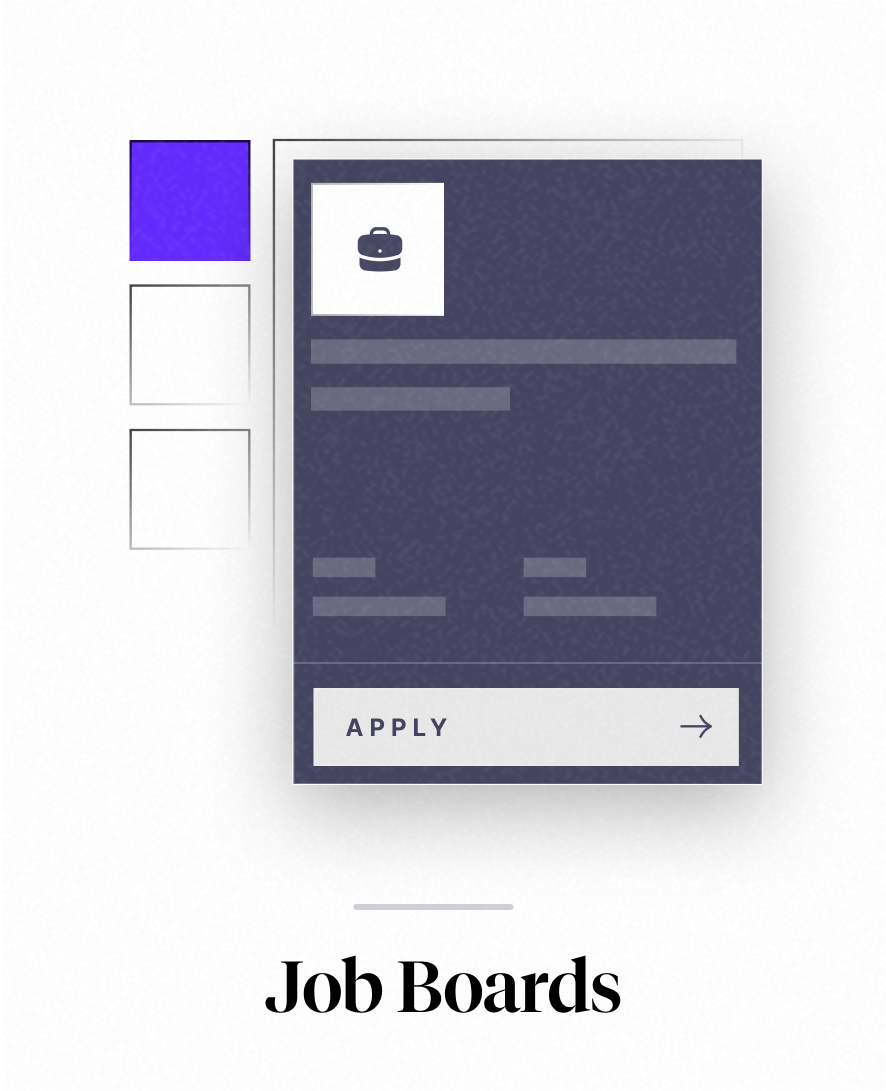WayCool Foods
Waycool is a farm-to-retailer, agri-tech company
😎 WayCool
About WayCool
Waycool is a B2B (farm-to-retailer) agri-tech company that operates in 3 categories - Fresh Fruits & Vegetables, Grains & Staples and Dairy. The company has focused operations in South India. Waycool has raised ~$310Mn through equity and debt till date. Operating in 50 regions in the country, WayCool handles more than 1,200 tons of food products daily, with a network of more than 150,000 farmers.
Waycool's focus is to create a demand-led supply chain where farmers grow based on demand thereby ensuring less wastage and low volatility in prices rather than the traditional supply-led supply chain where farmers grow based on guts and intuition causing periods of shortages and gluts which in turn cause a high volatility in prices and high wastage.
This project is focused on Waycool's fresh business that procures fruits and vegetables from farmers across India and sells it to retailers in Chennai, Bangalore, Coimbatore & Pondicherry. Waycool runs Collection Centers (CCs) in farm clusters where farmers bring their produce which is then graded and packed in crates. Waycool has Distribution Centers (DCs) in key demand clusters within a particular city for distribution. The state-of-the art supply chain with conveyor systems ensures that the produce goes untouched from Collection Center to Distribution Center and finally to the retailer thus preserving freshness and shelf-life.
Sales Model
Waycool mimics the FMCG sales model and employs a Feet-on-Street (FoS) sales force to visit retailers and nudge them to place orders. Since it deals with the perishables category, the frequency of purchase from the retailer is high and the only way costs are kept reasonable is if retailers self-order thereby delinking salespersons visit to the retailer and sales.
All of the above is also true for onboarding - a FoS salesperson visits a retailer and once converted, assists the retailer to download the Waycool app and onboard. To scale effectively, the application needs to have the capability and ease-of-use to help retailers onboard themselves once they discover Waycool. For the purpose of this project - The full onboarding process is seen from the POV of self discovery & self onboarding since that is the future Waycool is vying for.
📱About the Product - Waycool App
The WayCool application is a customer (retailer) facing app available only on Android. It has 10k+ downloads on PlayStore. Did not find any issues with discoverability on the PlayStore or Google search. The product has the following features:
- Product catalog listed based on category
- Product recommendations
- WayCred - Credit support for retailers
- Access to WayCool's in-house brands
- Offers & Discounts
🛒 Problems Faced by Retailers
- Early Morning Hustle - Retailers need to visit the wholesale market early in the morning (~4AM), scout for good quality produce, and bargain for the right price. Most retailers are 1-2 member businesses and this means significantly less bandwidth for dealing with their customers throughout the day (most shops close by 8 PM4 AM)
- Lack of predictability in quality of produce - There are three aspects to quality especially in the context of fresh produce:
- Recovery - How much of the produce purchased is in fact saleable? (A retailer cannot sell produce that is broken, rotten etc.)
- Specification - How much of the produce matches the specifications required by my customers? (A retailer cannot sell oversized or misshaped potatoes)
- Consistency - Can I get similar quality of produce every day? OR How much of the produce in a bag or in different bags conform to my requirements? (Fresh produce is sensitive to weather conditions, storage quality etc. which adds to the complexity in sourcing).
The measure of quality in the wholesale market is subjective - looks, touch and feel. Also, there is variance in recovery and specification on a particular day and overall lack of consistency on a day-to-day basis in the market.
- Freshness - Farmers typically harvest produce during the day and take it to the markets within city limits the next day. The produce changes many hands - Main wholesale market to an ancillary market and then to a retailer. Multiple touch points cause the produce to lose freshness and shelf life.
- Hygiene - The mandi is not maintained well. In addition since it deals with fresh produce, there is accumulation of rotting vegetables in the surroundings. While this is not a major pain point, it is not a pleasant experience for retailers to start their morning in such an environment.
- Access to Credit - Informal credit is available to few retailers but at much higher interest rates than formal credit.
Core Value Proposition
- Primary Value Proposition - High quality and consistency of quality
- Secondary Value Proposition - Convenience
- Tertiary Value Proposition - Access to credit
"WayCool redefines fresh produce supply-chain for retailers. Our farm-to-retailer supply chain cuts out the middleman to deliver fresh, high-quality, and consistent produce right to your store. Avoid the early morning market visits and unpredictable quality—WayCool ensures you get produce that meets your specifications, with high recovery and consistent freshness, every time. Spend more time with your customers and less on sourcing: We make it easier to keep your shelves stocked with the best, so you can focus on growing your business."
About the Market
Indirect Competition - APMC Wholesale Mandi (The OG Market)
The issues with the market are already covered. Some of the advantages of procuring from the market are:
- Price Discovery - Retailers can find a commodity's price set daily due to supply and demand dynamics.
- Habit & Ikea Effect - For retailers who have been in the business for some time, the daily visit to the market is a habit. In addition, they find the produce chosen by them superior even if it is objectively inferior because of the work they have put in (Ikea effect).
- Easy Access to Informal Credit - Wholesalers extend credit to retailers without the requirement of any formal documentation. Credit is also one of the key drivers of loyalty.
Direct Competition
Direct competitors of WayCool offering similar products and services, in the regions in which it operates are as follows:
- Ninjacart - Recently pivoted to being a marketplace. Ninjacart has a retailer-facing app and a detail teardown is done as part of the study for the project
- BigBasket (BB Mandi) - Detail teardown is done as part of the study for this project
- Several local players operate at a small scale (few pin codes) - Primarily use WhatsApp and act as consolidators; They act as another middle-man between the market and the retailer with delivery as a service.
ICP
Insights from User Conversations
Spoke with 10 users at their stores in Bangalore that helped define the ICPs.
ICP Definition
ICPs | Young "Heir"/Young Entrepreneur (ICP1) | Affluent Neighborhood & Modern Trader (ICP2) |
|---|---|---|
Age (of Owner) | Less than 40 years | Less than 55 years |
Gender (of Owner) | Male | Male |
City | Bangalore, Chennai, Coimbatore, Pondicherry | Bangalore, Chennai, Coimbatore, Pondicherry |
Education Level | Basic degree or Less | Basic degree or less |
Marital Status | Married/Un-married | Married |
Type of Company Registration | Sole Proprietorship | Sole Proprietorship |
Type of Operations | Direct Family Operated | Direct / Extended Family Operated |
Shop Size* | Single Door/Double Door | Double Door (minimum) |
Socio-Economic Status of Neighborhood of Shop | Lower Middle Class/Middle Class/Upper Middle Class | Middle Class/Upper Middle Class/Rich |
Distance of Shop from Mandi | >10km | >10km |
Annual Household Income | Rs. 6L - Rs. 10L | Rs.10L - Rs.30L |
Type of Vehicle Owned | 2-Wheeler | 2-Wheeler and/or 3-Wheeler (for purchases) |
Business Vintage (Age of Shop) | Less than 8 years | Less than 8 years |
Type of Store | Small Kirana Store | Modern Trade Store |
No. of Emloyees/Family members working for the store | 1-2 | 2-5 |
Typical Day - Brief Schedule & Time Spent | 3am - Wakeup 4am-6am - Mandi visit for purchases 6am-11am - Take care of shop activities & sales 11am - Handover shop to family member/employee and return home 12pm-4pm - Sleep 4pm-11pm - Household Chores & Entertainment/Family Time, Spend time on Social Media, 11pm - Sleep | 6am - Wakeup 6:30am - Open shop and inward all material received (Employee or family member goes for purchase in Mandi) 7am-11am - Be cashier since it is Peak sales time 11am-4pm - Relatively Free time - Spend time watching movies/Cricket Match, Social Media 4pm - 8pm - Relatively busy time in the shop 8pm - Shut shop and return home 9pm-11pm - Family time, Watch TV 11pm - Sleep |
Time Spent on Commute | 2-4 hours | 0.5-1.5 hours |
Overall Assessment of Time Spent | Very early waking time and lack of quality sleep and physical work of visiting and moving produce from the mandi makes it clear that BASIC COMFORTS are missing. Also lot of time spent in commute is mostly self driven which adds to the stress. Points to a strong personal motivation to find alternatives. | While the day starts early, lot of free time available in the afternoon. Indicative of more bandwidth for giving attention to minor aspects of the shop like arrangement of F&V etc. Points to being much more choosy considering that there is no time pressure and the day is comfortable |
Lean Day of the Week | Monday (Weekends are peak sales days) | Monday & Thursday (Weekends and Wednesday are peak sales days) |
Mandi Visits per Week | 4-5 times | 1-2 times |
Apps Used | YouTube, MX Player, PocketFM, Instagram, WhatsApp, Facebook, Khatabook, | YouTube, MX Player, PocketFM, WhatsApp, Facebook, Khatabook, Instagram (based on age) |
Free Time - Slots During the Day | 4pm onwards | 11am-4pm |
Problem Statement/Frustration Faced (With regard to F&V purchases) |
|
|
Spending Patterns |
(ROIC most important for this ICP and will keep shop expenses to the minimum for that reason. There is also no bandwidth in terms of time to think deeply about growth) |
(Capital is less of a constraint and ambition is generally higher which is the reason for higher spending on shop upgrades and opening new stores) |
Product Usage - Time of Day when product is used | 4pm-6pm | 1pm-6pm |
Most valued features and reasons |
|
|
Frequency of Usage of Product/Week | 4-7 times/week | 3-6 times/week |
Avg. Money Spent on the Product/Day | Rs.30,000-Rs.50,000 (High Wallet Share) | Rs.50,000-Rs.75,000 (Medium Wallet Share) |
Avg. Sales per Day of the Shop | Rs.50,000-Rs.75,000 | Rs.1,20,000 - Rs. 2,00,000 |
Mobile Phone - Android/iPhone | Android | Android/iPhone |
Buying Decision (Quality vs Price) | Price | Quality |
Risk Appetite of Owner (indicator of time to activation of the customer) | Low | Medium-High |
User Goals & JTBD
User Goal | ICP1 | ICP2 | Concerns | Industry Relevance |
|---|---|---|---|---|
Financial | Primary "I want to buy consistent & high quality produce at a fair price that can help make more margins" | Primary "I want to buy consistent & high quality produce that can help grow the business" | Customer retention and making higher margins were biggest concerns | Retailing is an ROIC business and all retailers are looking at making the maximum number of inventory turns. |
Functional | ||||
Social | Secondary "I want my shop to be known in the street as one that serves the best quality" | Losing face with a customer and negative WoM mostly from a society perspective | Offline retailers mostly have a fixed customer base (since the neighborhood that buys from them is fixed) and social capital is an important predictor of long term success | |
Personal | Secondary "I want to get a full nights sleep and not do any menial and laborious work" | Bad sleep timings and sheer drudgery from work |
Validation from User Conversations
- When asked "Why are you using Waycool?" - the first answer was always that quality is good and hence customer retention is higher. Many users also said that they can price better and make more margins.
- ICP1 rated their work-life balance to be "Very Poor" and also indicated that their major area of concern in their personal life was health which validates the personal goal.
- ICP2 had complaints that seemed small but most users repeatedly said that they will lose face with the customer and also in the neighborhood which validates the social goal.
Onboarding Teardown
Waycool App
A retailer can download the app on Google Play store and onboard himself on the Waycool App.
Legal & Audit Requirements - Customer Onboarding
The following are the legal and audit requirements regarding customer onboarding (these are hard constraints set by the company and HAVE to be addressed during onboarding):
- Proof that Waycool is selling to a business and not a consumer as Waycool cannot do B2C
- Proof that the person signing up is real
- Proof that the business signing up is real
- Proof of relationship between person signing up and the business
Onboarding Teardown - Waycool
Waycool App - Teardown.pdfOnboarding Flow - Competition
I also did a basic onboarding flow study of competition to compare
Teardown - Competition.pdfActivation Metrics
Activation Metric - 1
Number of orders in the first 2 weeks
Reasoning - Fruits & Vegetables are perishable and hence warrant daily purchases. More number of purchases in the first 2 weeks means that the ICPs have a good enough comparison set to make the switch from Mandi to Waycool and hence maybe highly correlated with retention
Activation Metric - 2
Number of SKUs ordered in the first 2 weeks
Reasoning - ICPs need to be convinced that even long tail SKUs are of good quality and at the right price. Timeline is 2 weeks so that the ICPs get enough feedback from their own customers. More the SKUs ordered, more confident the ICPs are to make the switch and hence maybe highly correlated with retention
Activation Metric - 3
Average Weight per order in the first 2 weeks
Reasoning - ICPs may start with a test order but them quickly graduating to a high weight per order would indicate that they have fully experienced the value proposition and would remain loyal at least for SKUs they are comfortable with and hence this metric is strongly correlated with retention
Activation Metric - 4
Number of fruits ordered in the first 2 weeks
Reasoning - Fruits are the hero products of Waycool and a large number of fruits ordered may mean higher retention since customers experience AHA moments in these orders
Activation Metric - 4
Number of orders of branded fruits and vegetables in the first 2 weeks
Reasoning - Waycool has it's own brands (Dezi Fresh & L'exotique) of differentiated fruits and vegetables. A customer ordering branded fruits multiple times could be indicative of high retention since these are Hero products of Waycool.
Other Metrics to be Tracked
Quantitative
- D1, D7, D14 retention (Since F&V is purchased everyday, higher time-frames may not be effective to measure retention)
- WAU
- DAU/MAU
- Add to cart rate
- Conversion rate
- Average Order Value
- Sales Return percentage
- Customer LTV
- NPS
- Cart abandonment rate
- Signup to onboarding complete percentage
- Quality CSAT score
- Delivery experience CSAT score
Qualitative
- Play store ratings
- Play store reviews
Brand focused courses
Great brands aren't built on clicks. They're built on trust. Craft narratives that resonate, campaigns that stand out, and brands that last.
All courses
Master every lever of growth — from acquisition to retention, data to events. Pick a course, go deep, and apply it to your business right away.
Explore courses by GrowthX
Built by Leaders From Amazon, CRED, Zepto, Hindustan Unilever, Flipkart, paytm & more
Course
Advanced Growth Strategy
Core principles to distribution, user onboarding, retention & monetisation.
58 modules
21 hours
Course
Go to Market
Learn to implement lean, balanced & all out GTM strategies while getting stakeholder buy-in.
17 modules
1 hour
Course
Brand Led Growth
Design your brand wedge & implement it across every customer touchpoint.
15 modules
2 hours
Course
Event Led Growth
Design an end to end strategy to create events that drive revenue growth.
48 modules
1 hour
Course
Growth Model Design
Learn how to break down your North Star metric into actionable input levers and prioritise them.
9 modules
1 hour
Course
Building Growth Teams
Learn how to design your team blueprint, attract, hire & retain great talent
24 modules
1 hour
Course
Data Led Growth
Learn the science of RCA & experimentation design to drive real revenue impact.
12 modules
2 hours
Course
Email marketing
Learn how to set up email as a channel and build the 0 → 1 strategy for email marketing
12 modules
1 hour
Course
Partnership Led Growth
Design product integrations & channel partnerships to drive revenue impact.
27 modules
1 hour
Course
Tech for Growth
Learn to ship better products with engineering & take informed trade-offs.
14 modules
2 hours
Crack a new job or a promotion with ELEVATE
Designed for mid-senior & leadership roles across growth, product, marketing, strategy & business
Learning Resources
Browse 500+ case studies, articles & resources the learning resources that you won't find on the internet.
Patience—you’re about to be impressed.























